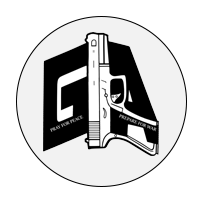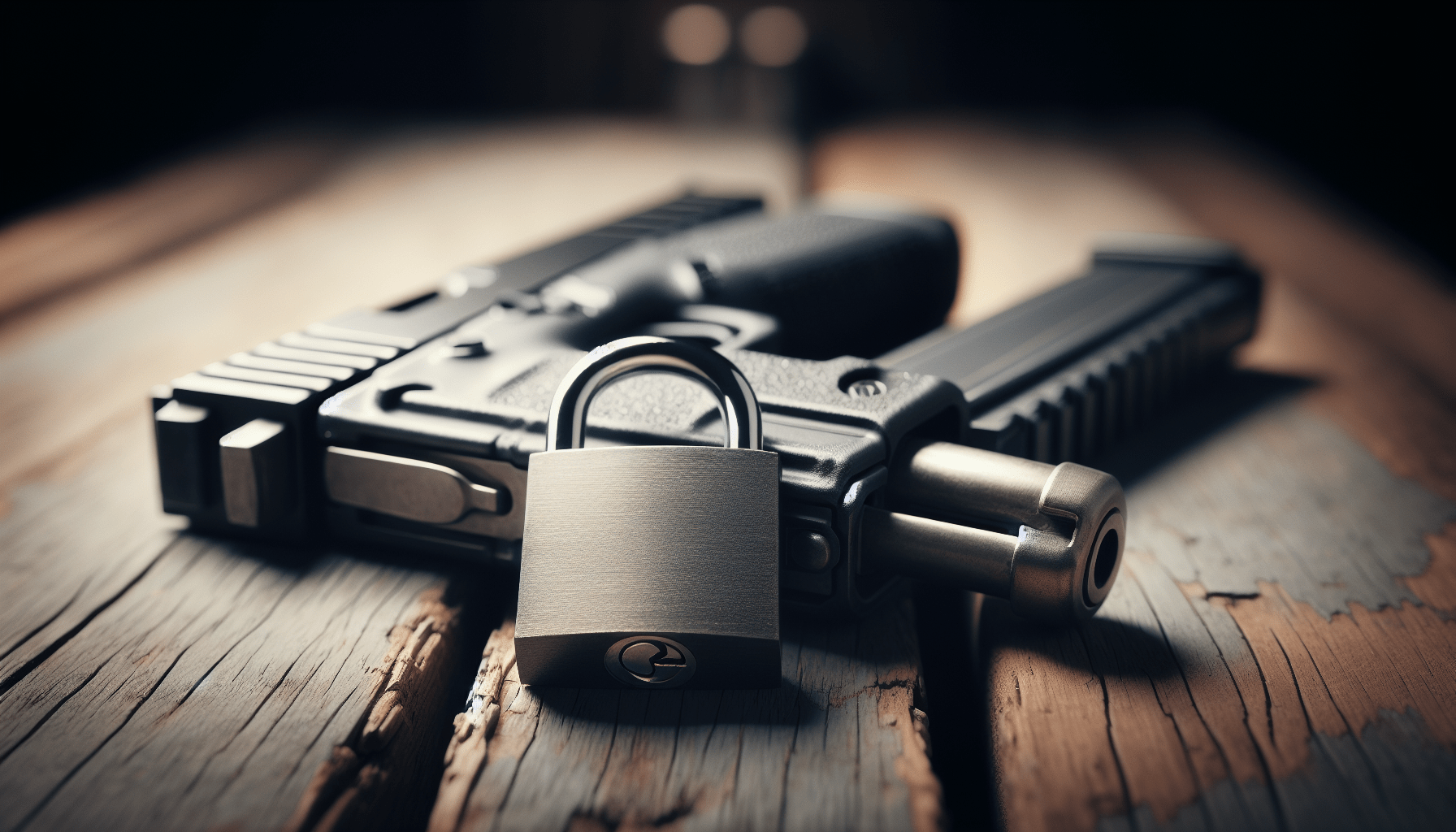Have you ever thought about how crucial gun safety is in everyday life? It might seem like something only gun owners need to worry about, but gun safety affects everyone, whether you’ve ever held a firearm or not. Understanding the principles of responsible gun handling is important. This article will use real-life scenarios to make gun safety straightforward and relatable for you.

Understanding Gun Safety: The Basics
Gun safety is not just about following rules—it’s about forming habits that protect you and those around you. Whether you’re an experienced shooter or a curious onlooker, knowing the basic safety rules is essential.
The Four Fundamental Rules of Gun Safety
These are the golden rules of handling firearms. They form the basis of all gun safety protocols and are universally recognized for their effectiveness:
- Treat Every Gun as if It’s Loaded: Always check a firearm’s status yourself, no exceptions.
- Always Point the Gun in a Safe Direction: Keep the muzzle aimed where it won’t hurt anyone in case of an accidental discharge.
- Keep Your Finger Off the Trigger Until Ready to Shoot: This prevents accidental firing.
- Be Certain of Your Target and What’s Beyond It: Make sure you know what you’re shooting at and what lies behind it, in case of a miss.
By internalizing these rules, you can significantly reduce accidents and ensure a safer environment for everyone.
Real-Life Scenarios and Lessons Learned
Understanding theoretical rules is one thing, but seeing them play out in real-life situations helps cement their importance. Let’s explore scenarios illustrating why these rules matter.
Scenario 1: Mishandled Firearms at Home
Imagine a teenager finding a firearm at home out of curiosity. If the gun hasn’t been stored properly—locked and unloaded—this could lead to tragedy. Unfortunately, there have been countless tragedies from such scenarios, reminding us of the critical role of safe storage.
- Lesson: Always store firearms securely and educate everyone in your household about their dangers and safe handling practices.
Scenario 2: Hunting Trips and Outdoor Shooting
During a weekend hunting trip, a miscalculation about the presence of other hunters led to a near hit from a rifle. This scenario is a stark reminder to fully identify targets and background before firing.
- Lesson: Never shoot unless you’re absolutely sure of what or who your target is, and what’s beyond it.
Scenario 3: At the Shooting Range
At a local range, a shooter failed to keep the muzzle pointed downrange, resulting in a person sustaining an injury when the gun accidentally discharged. This highlights the importance of maintaining control over the firearm direction at all times.
- Lesson: At the range or otherwise, always ensure firearms are controlled and pointed in a safe direction.
The Role of Education and Training
Education and continuous training are critical components of gun safety. Even experienced gun owners benefit from regular training that reaffirms safety practices and responds to advancements in gun technology and techniques.
Advanced Training Programs
Enrolling in training from qualified professionals like those at Green Line Arms can polish your skills and safety awareness. These programs offer hands-on teaching, which is highly beneficial.
- Action: Consider signing up for training courses to enhance your understanding and skills.
Technology in Gun Safety Training
Virtual shooting ranges offer a modern take on traditional training. By simulating real-life scenarios safely and interactively, they provide aspiring enthusiasts with experiences that can improve judgment and reaction times.
- Action: Utilize technology-based solutions to immerse yourself in a controlled yet realistic training environment.
Addressing Common Misconceptions
Misunderstandings about firearms and safety often lead to complacency or fear. Let’s address common myths head-on.
Misconception 1: Experience Trumps Caution
Some believe experience eliminates the need for strict adherence to safety rules. In reality, even experienced shooters have accidents if they become complacent.
- Reality: Every instance of handling a firearm should be treated with respect and caution, regardless of experience.
Misconception 2: Guns are Always Dangerous
The idea that guns inherently pose a constant threat causes undue fear. When handled properly, firearms are tools that require respect but are not inherently dangerous.
- Reality: Properly following safety protocols greatly diminishes the risk associated with gun handling.
Misconception 3: Safety Measures Aren’t Needed During Practice
In informal settings or practice situations, people might relax some safety standards. However, accidents can happen at any time without the right precautions.
- Reality: Consistent adherence to all safety measures is crucial in every setting, including practice.

Enhancing Community Understanding and Involvement
Creating a culture of safety and awareness benefits everyone, whether they own a gun or not. Knowing how to relate to gun safety on a community level can impact societal norms and behaviors.
Community Education Programs
Participating in or organizing community workshops can foster wider understanding and acceptance of gun safety practices.
- Suggestion: Engage in or promote educational initiatives in your community to spread safety practices.
Responsive Policy Advocacy
Advocate for policies supporting responsible gun ownership and safety training. Policy change can reinforce individual actions at a community level.
- Suggestion: Support or initiate dialogues with policymakers about enhancing community safety standards.
Recommendations and Final Thoughts
Engage with your local gun shops and training facilities, like Green Line Arms, which are dedicated to promoting safety through advanced and interactive training experiences. Leverage these resources to stay informed and skilled in safe firearm handling.
Why Visit Green Line Arms?
For those interested in furthering their gun safety knowledge and skills, Green Line Arms offers comprehensive solutions. From high-quality firearms to state-of-the-art training sessions and simulation experiences, they provide everything you need to become a responsible gun owner and advocate for safety in your community.
In conclusion, gun safety affects everyone, and understanding its fundamentals through real-life scenarios makes the importance clearer. Take action today to further your gun safety education, and encourage others to do the same. Your proactive attitude can make a significant difference in reducing accidents and fostering a culture of safety. Remember, safety is not just a principle—it’s a practice.




